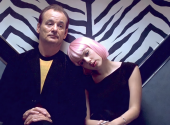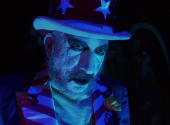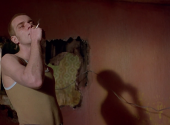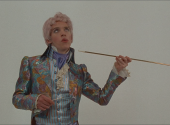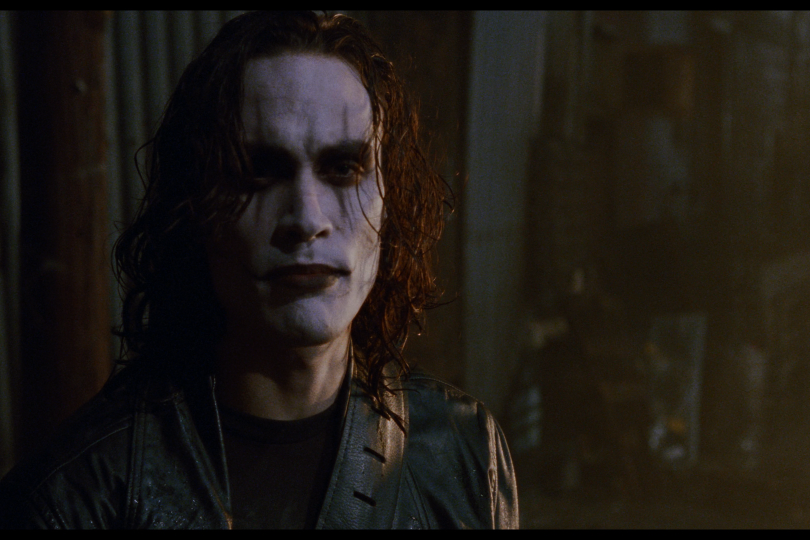
The Soundtracks of Our Lives #4: The Crow, Gloomy Atmospheres
Some films have marked an era. Partly because of the gripping plot and partly because of the cult status that it acquired. And also, unfortunately, because of tragic events that made them infamous. But above all, for a soundtrack that rocks and which perfectly matches the succession of scenes. Certainly, the hard-hitting film The Crow is one of the most shining examples of this.
"It Can't Rain All the Time." This line has become one of the most famous film quotes. Indeed, nothing could represent the atmosphere of the 1990s and the generational unease of Youth X better than this movie. Released in 1994, and directed by Alex Proyas, The Crow is more than just a supernatural action film; it has become a cultural touchstone, primarily due to its haunting visuals, engaging narrative, and unforgettable soundtrack.
Curated by music supervisor and executive producer Joe Pizzulo, the film's eclectic blend of punk, alternative rock, and gothic themes not only defined the mood and tone of the movie but also transformed how soundtracks were conceived in Hollywood, paving the way for a new era in music integration within films.
Before The Crow, soundtracks often functioned as mere background noise or as additional marketing tools. However, the film’s groundbreaking approach integrated music intimately with the storyline to amplify emotions, enhance character development, and create a distinct atmosphere. Each track was meticulously chosen to elevate pivotal scenes, ensuring the songs were more than just accompaniment – they were essential components of the storytelling process.
The film starts with a dramatic and eerie opening sequence, showing the cityscape of Detroit as the credits roll. The haunting piece "Burn" by The Cure sets the tone for the gothic, post-apocalyptic world in which the story unfolds. There couldn't be a more apt choice of band, and indeed, another dark and extremely epic piece of theirs immediately follows.
It is one of the film's most poignant scenes, as Eric returns to seek revenge for the wrongs done to him and his love, Shelly. "Burn" appears as a fiery anthem that seems to encapsulate Eric's burning desire for justice, the guitars wailing like the anguished cries of lost souls. It's a perfect backdrop for the scenes of Eric rising from his grave, cloaked in shadows and rage. The song's lyrics and mournful melody perfectly encapsulate Eric's anger and sorrow.
On the other hand, during the flashback sequence when Eric and Shelly are happily together before their tragic deaths, the sombre ballad "It Can't Rain All the Time" by Jane Siberry plays in the background, a melancholic tune which underscores their lost love and the pain that fuels Eric's quest for revenge.
As Eric confronts his enemies in a climactic showdown, Nine Inch Nails' cover of Joy Division's "Dead Souls" plays, embodying his fury and grief. The intensity of Trent Reznor’s performance heightens the tension, providing a visceral experience that aligns perfectly with the film's dark, gritty tone. The same could be said about "After the Flesh" by My Life with the Thrill Kill Kult, featured in the scene where Eric rescues Sarah. The track's industrial beats and dark lyrics contribute to the film's gothic aesthetic and the chaotic nature of the city.
Nine Inch Nails' "Dead Souls" adds a layer of industrial goth to the mix, with its driving bassline and haunting vocals that resonate in the film's more introspective moments as Eric grapples with his new existence and the painful memories of his past. Meanwhile, the Suicide cover "Ghostrider" performed by Rollins Band is a high-octane, adrenaline-fueled ride that plays during the film's intense action sequence, and it is also used to underscore the climactic confrontation with the film's antagonist, Top Dollar.
The scene where Eric begins to enact his vengeance against those who wronged him is another landmark moment. “Big Empty” by Stone Temple Pilots accompanies Eric’s transformation into the Crow, emphasising his grim resolve. The powerful lyrics and resonant sound meld seamlessly with the imagery of Eric confronting his former killers, creating an unforgettable experience that redefines the revenge genre.
As the film draws to a close, Eric's farewell to the earthly realm is accompanied by an emotional reprise of "It Can't Rain All The Time." This moment encapsulates the film's central theme of hope and the idea that even after darkness, light can emerge. This bittersweet finale elevates the emotional weight of the film, allowing audiences to ponder the cyclical nature of life, death, and love. The song acts as both a farewell and a new beginning, leaving a lasting impression of tender melancholy.
The crowning achievement of The Crow's soundtrack is its ability to relate directly to the film's themes of loss, revenge, and redemption. Tracks from bands like The Cure, Nine Inch Nails, Stone Temple Pilots and others helped encapsulate the tumultuous emotions experienced by the characters, particularly the protagonist, Eric Draven, played by Brandon Lee. The soundtrack became a cohesive element that spoke to the heart of the film and resonated deeply with its audience.
Furthermore, the soundtrack serves as a tribute to Brandon Lee, whose untimely death during filming added an extra layer of poignancy to the film's release. Thanks to the music's enduring appeal, Lee's portrayal of Eric Draven remains memorable and emblematic in both film and music history. The Crow soundtrack remains a seminal work, not only for its contributions to the movie but also for its influence on the evolution of soundtracks and the integration of music into film narratives. Films like Spawn, Moulin Rouge!, and even Guardians of the Galaxy would later follow a similar path, illustrating the influence of The Crow's bold musical choices.
The Crow soundtrack paved the way for future films to explore more diverse and genre-specific sounds. Its iconic moments, underlined by a compelling soundtrack, continue to evoke passion and nostalgia, ensuring that The Crow remains forever etched in cinematic history. And speaking of films with killer soundtracks that changed history, how could we not mention the legendary Pulp Fiction? We will talk about it in our next episode.
How did The Crow influence the choice of songs in film soundtracks? How much did the tragedy create the myth? How important is the musical genre in the description of a scene? And what other film can represent the malaise of Generation X?
Leave your opinion in the comments below!
If you have found an error or typo in the article, please let us know by e-mail info@insounder.org.


